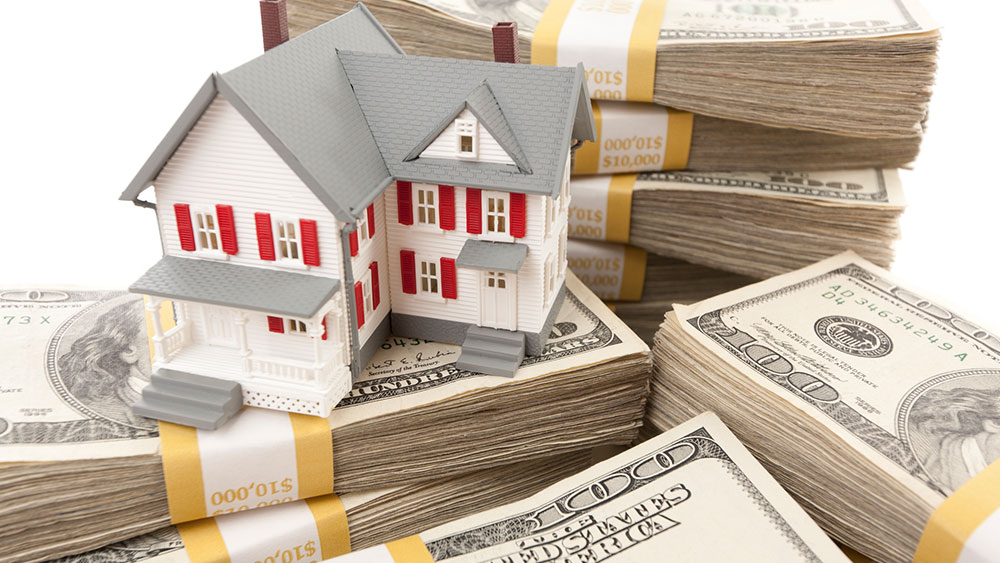Ten Proven Ways to Build Equity in Your Home

Building equity in your home is a key financial strategy that can help you increase your net worth and secure a stronger financial future.
Equity represents the value of your property that you truly own and can be a valuable asset that opens up various opportunities. Whether you plan to sell your home or leverage its value for other purposes, numerous effective ways exist to build equity and enhance your financial position.
In this article, we explore ten proven methods to build equity in your home, allowing you to make the most of your investment.
#1 Make a Larger Down Payment
When purchasing your home, aim to make a larger down payment. You immediately increase your equity stake by putting down a substantial amount upfront. This means you will owe less on your mortgage and own a larger percentage of your home from the start.
#2 Accelerate Your Mortgage Payments
Consider making extra principal payments on your mortgage whenever possible. Increasing your monthly payment or making additional payments throughout the year can significantly reduce the interest you pay over time. As a result, more of your payment reduces the principal balance, leading to faster equity growth.
#3 Refinance to a Shorter Loan Term
Refinancing your mortgage to a shorter loan term, such as switching from a 30-year mortgage to a 15-year mortgage, can help you build equity more quickly. Although your monthly payments may increase, you’ll pay off your mortgage sooner and build equity more rapidly.
#4 Take Advantage of Home Appreciation
Monitor the real estate market and take advantage of home appreciation. Market conditions, desirable locations, and property improvements can all contribute to appreciating your home’s value. Regularly assess the market and make strategic improvements to capitalize on this growth and build equity passively.
#5 Avoid Refinancing for Non-Essential Expenses
While refinancing can be beneficial, be cautious about using it to fund non-essential expenses. It’s important to distinguish between refinancing for equity-building purposes and refinancing for short-term cash needs. Refinancing for unnecessary expenses may increase your debt load and hinder long-term equity growth.
#6 Make Energy-Efficient Upgrades
Investing in energy-efficient upgrades can save you money on utility bills and boost your home’s value and equity. Consider adding solar panels, upgrading insulation, or installing energy-efficient appliances. These improvements increase your home’s appeal and make it more attractive to potential buyers, enhancing its overall value.
#7 Maintain and Improve Curb Appeal
First impressions matter when it comes to building equity in your home. Enhance your property’s curb appeal by maintaining a well-manicured lawn, updating the exterior paint, and improving the landscaping. A visually appealing home attracts potential buyers and increases your home’s value over time.
#8 Rent Out a Portion of Your Property
If your home has extra space, consider renting out a portion. Whether it’s a basement apartment, a separate suite, or a detached guesthouse, having a rental income stream can contribute to building equity. The additional income generated from renting can be used to pay down your mortgage principal or make home improvements.
#9 Regularly Review Your Property Tax Assessment
Property tax assessments are based on the value of your home. Ensure that your property tax assessment accurately reflects the market value of your property. Challenging an inaccurate assessment can lower your property taxes, leaving you with more money to allocate towards your mortgage and increase equity.
#10 Seek Professional Advice
When building equity, it helps to seek professional advice. Consult with real estate agents, financial advisors, or mortgage specialists who can provide valuable insights tailored to your circumstances. They can help you make informed decisions, identify opportunities, and guide you toward effective equity-building strategies.
Closing Points
Building equity in your home is a long-term financial goal that can significantly impact your overall financial well-being.
By implementing these ten strategies, including making a larger down payment, accelerating mortgage payments, refinancing wisely, capitalizing on home appreciation, making energy-efficient upgrades, maintaining curb appeal, renting out a portion of your property, reviewing property tax assessments, and seeking professional advice, you can maximize your home’s equity potential.
Remember, building equity is a gradual process, so remain patient, stay informed, and watch your home’s value and equity grow over time.
